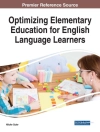This book explores bilingual community education, specifically the educational spaces shaped and organized by American ethnolinguistic communities for their children in the multilingual city of New York. Employing a rich variety of case studies which highlight the importance of the ethnolinguistic community in bilingual education, this collection examines the various structures that these communities use to educate their children as bilingual Americans. In doing so, it highlights the efforts and activism of these communities and what bilingual community education really means in today’s globalized world. The volume offers new understandings of heritage language education, bilingual education, and speech communities for bilingual Americans in the 21st century.
विषयसूची
INTRODUCTION: Organization, Content and Purpose of the Book: Ofelia García, Zeena Zakharia and Bahar Otcu
PART I: CONCEPTUALIZING BILINGUAL COMMUNITY EDUCATION
Ofelia García, Zeena Zakharia and Bahar Otcu: Bilingual community education: Beyond heritage language education and bilingual education in New York
PART II: COMMUNITIES EDUCATE THEIR OWN BILINGUAL CHILDREN
Community Organizations: Dynamic Bilingualism in Community Education
Carmina Makar: Building communities through bilingual education: The Case of Asociación Tepeyac de New York
Ruhma Choudhury: Raising bilingual and bicultural Bangladeshi-American children in NYC: Perspectives from educators in a Bengali community program
Ameena Ghaffar-Kucher and Anup P. Mahajan: Salaam! Namaste!: Indian and Pakistani community-based efforts towards mother-tongue maintenance
Supplementary Bilingual Community Schools: Innovations and Challenges
Jeehyae Chung: Hidden efforts, visible challenges: Promoting bilingualism in Korean-America
Naomi Kano: Japanese community schools: New pedagogy for a changing population
Bahar Otcu: Turkishness in New York: Languages, ideologies, and identities in a community-based school
Maria Hantzopoulos: Going to Greek school: The Politics of religion, identity and culture in community-based Greek language schools
Informal Community Education: Alternative Pathways to Bilingualism
Busi Makoni: Community-based initiatives and Sub-Saharan African languages in the Big Apple
Roozbeh Shirazi and Maryam Borjian: Persian bilingual community education among Iranian-Americans in New York City
Bilingual Community Day Schools: Changes and Continuities
Zeena Zakharia and Laura Menchaca Bishop: Towards positive peace through bilingual community education: Language efforts of Arabic-speaking communities in New York
Sharon Avni and Kate Menken: Educating for Jewishness: The teaching and learning of Hebrew in day school education
Rakhmiel Peltz and Hannah Kliger: Becoming Yiddish speakers in New York: Burgeoning communities of bilingual children
PART III: COMMUNITY-PUBLIC SCHOOL ALLIANCES FOR BILINGUALISM
Laura Ascenzi-Moreno and Nelson Flores: A case study of bilingual policy and practices at the Cypress Hills Community School
Jane F. Ross and Fabrice Jaumont: Building bilingual communities: New York’s French bilingual revolution
Isabelle Barrière and Marie-Michelle Monéreau-Merry: Trilingualism of the Haitian diaspora in NYC: Current and future challenges
Tatyana Kleyn and Beth Vayshenker: Russian bilingual education across public, private and community spheres Wen-Tsui Pat Lo: Mandarin-English bilingual education in New York City: A case study of supplementary education in the Chinese community
PART IV: BILINGUAL RESOURCES FOR A GLOBAL FUTURE: RECOMMENDATIONS
Maureen T. Matarese: Beyond community: Networks of bilingual community support for languages other than English in NYC
Ofelia García: American multilingualism for a global future: Recommendations for parents, educators and policy-makers
लेखक के बारे में
Zeena Zakharia is Assistant Professor in the Department of Leadership in Education at the University of Massachusetts, Boston. Her recent publications consider the interplay of language policy, collective identity, and human security in schools, during and after violent political conflict. These interests stem from over a decade of educational leadership in war-affected bilingual contexts.












